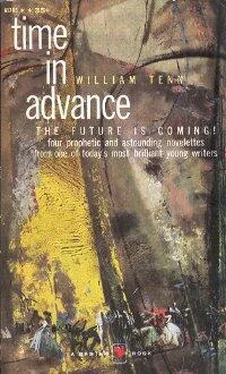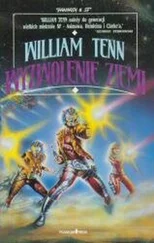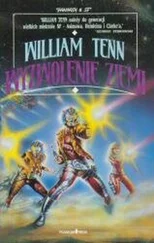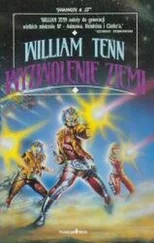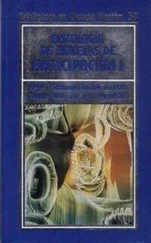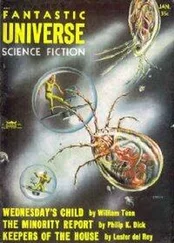William Tenn - Winthrop Was Stubborn
Здесь есть возможность читать онлайн «William Tenn - Winthrop Was Stubborn» весь текст электронной книги совершенно бесплатно (целиком полную версию без сокращений). В некоторых случаях можно слушать аудио, скачать через торрент в формате fb2 и присутствует краткое содержание. Год выпуска: 1957, Издательство: Galaxy Publishing Corporation, Жанр: Фантастика и фэнтези, на английском языке. Описание произведения, (предисловие) а так же отзывы посетителей доступны на портале библиотеки ЛибКат.
- Название:Winthrop Was Stubborn
- Автор:
- Издательство:Galaxy Publishing Corporation
- Жанр:
- Год:1957
- ISBN:нет данных
- Рейтинг книги:5 / 5. Голосов: 1
-
Избранное:Добавить в избранное
- Отзывы:
-
Ваша оценка:
- 100
- 1
- 2
- 3
- 4
- 5
Winthrop Was Stubborn: краткое содержание, описание и аннотация
Предлагаем к чтению аннотацию, описание, краткое содержание или предисловие (зависит от того, что написал сам автор книги «Winthrop Was Stubborn»). Если вы не нашли необходимую информацию о книге — напишите в комментариях, мы постараемся отыскать её.
magazine in 1957.
Winthrop Was Stubborn — читать онлайн бесплатно полную книгу (весь текст) целиком
Ниже представлен текст книги, разбитый по страницам. Система сохранения места последней прочитанной страницы, позволяет с удобством читать онлайн бесплатно книгу «Winthrop Was Stubborn», без необходимости каждый раз заново искать на чём Вы остановились. Поставьте закладку, и сможете в любой момент перейти на страницу, на которой закончили чтение.
Интервал:
Закладка:
Mary Ann stood up with determination. “All right! I’m not the least little bit interested in this nonsense. You won’t help us in any way, you don’t care if we’re stuck here for the rest of our natural lives, and that’s that! I might as well go.”
In the name of the covenant, girl, what did you expect me to tell you? I’m no Oracle Machine. I’m just a man.”
“A man?” she cried scornfully. “A man? You call yourself a man? Why, a man would—a man would—a real man would just— Oh, let me get out of here!”
The dark-haired young man shrugged and rose too. He called for a jumper. When it materialized beside them, he gestured toward it courteously. Mary Ann started for it, paused, and held out a hand to him.
“Gygyo,” she said, “whether we stay or leave on time, I’m never going to see you again. I’ve made up my mind on that. But there’s one thing I want you to know.”
As if knowing what she was going to say, he had dropped his eyes. His head was bent over the hand he had taken.
Seeing this, Mary Ann’s voice grew gentler and more tender. “It’s just—just that—oh, Gygyo, it’s that you’re the only man I’ve ever loved. Ever really truly, absolutely and completely loved. I want you to know that, Gygyo.”
He didn’t reply. He was still holding her fingers tightly, and she couldn’t see his eyes.
“Gygyo,” she said her voice breaking. “Gygyo! You’re feeling the same, aren’t—”
At last Gygyo looked up. There was an expression of puzzlement on his face. He pointed to the fingers he had been holding. The nail of each one was colored with a bright; lacquer.
“Why in the world,” he asked, “do you limit it to the fingernail? Most primitive peoples who went in for this so of thing did it on other and larger parts of the body. On would expect that at least you would tattoo the whole hand — Mary Ann! Did I say anything wrong again?”
Sobbing bitterly, the girl darted past him and into the jumper. She went back to Mrs. Brucks’ room, and, when she had been calmed sufficiently, explained why Gygyo Rablin, the temporal supervisor, either could not or would not help them with Winthrop’s stubbornness.
Dave Pollock glared around the oval room. “So we give up? Is that what it comes down to? Not one person in all this brilliant, gimmicky, gadgety future will lift a finger to help us get back to our own time and our own families—and we can’t help ourselves. A brave new world, all right. Real achievement. Real progress.”
“I don’t see what call you have to shoot your mouth off, young man,” Mr. Mead muttered from where he was sitting at the far end of the room. Periodically, his necktie curled upwards and tried to nuzzle against his lips; wearily, petulantly, he slapped it down again. “At least we tried to do something about it. That’s more than you can say.”
“Ollie, old boy, you just tell me something I can do, and I’ll do it. I may not pay a whopping income tax, but I’ve been trained to use my mind. I’d like nothing better than to find out what a thoroughly rational approach to this problem could do for us. One thing I know: it can’t possible come up with less than all this hysteria and emotional hoop-la, this flag-waving and executive-type strutting have managed to date.”
“Listen, a difference it makes?” Mrs. Brucks held her wrist out and pointed to the tiny, gold-plated watch strapped around it. “Only forty-five minutes left before six o’clock, So what can we do in forty-five minutes? A miracle maybe we can manufacture on short notice? Magic we can turn out to order? Go fight City Hall. My Barney I know I won’t see again.”
The thin young man turned on her angrily. “I’m not talking of magic and miracles. I’m talking of logic. Logic and the proper evaluation of data. These people not only have a historical record available to them that extends back to and includes our own time, but they are in regular touch with the future—their future. That means there are also available to them historical records that extend back to and include their time.”
Mrs. Brucks cheered up perceptibly. She liked listening to education. She nodded. “So?”
“Isn’t it obvious? Those people who exchanged with us—our five opposite numbers—they must have known in advance that Winthrop was going to be stubborn. Historical records to that effect existed in the future. They wouldn’t have done it—it stands to reason they wouldn’t want to spend the rest of their lives in what is for them a pretty raw and uncivilized environment—unless they had known of a way out, a way that the situation could be handled. It’s up to us to find that way.”
“Maybe,” Mary Ann Carthington suggested, bravely biting the end off a sniffle, “Maybe the next future kept it a secret from them. Or maybe all five of them were suffering from what they call here a bad case of individual eccentric impulse.”
“That’s not how the concept of individual eccentric impulse works, Mary Ann,” Dave Pollock told her with a contemptuous grimace. “I don’t want to go into it now, but believe me, that’s not how it works! And I don’t think the temporal embassies keep this kind of secret from the people in the period to which they’re accredited. No, I tell you the solution is right here if we can only see it.”
Oliver T. Mead had been sitting with an intent expression on his face, as if he were trying to locate a fact hidden at the other end of a long tunnel of unhappiness. He straightened up suddenly and said: “Storku mentioned that! The Temporal Embassy. But he didn’t think it was a good idea to approach them—they were too involved with long-range historical problems to be of any use to us. But something else he said—something else we could do. What was it now?”
They all looked at him and waited anxiously while he thought. Dave Pollock had just begun a remark about “high surtax memories” when the rotund executive clapped his hands together resoundingly.
“I remember! The Oracle Machine! He said we could ask the Oracle Machine. We might have some difficulty interpreting the answer, according to him, but at this point that’s the least of our worries. We’re in a desperate emergency, and beggars can’t be choosers. If we get any kind of answer, any kind of an answer at all… ”
Mary Ann Carthington looked away from the tiny cosmetics laboratory she was using to repair the shiny damage caused by tears. “Now that you bring it up, Mr. Mead, the temporal supervisor made some such remark to me, too. About the Oracle Machine, I mean.”
“He did? Good! That firms it up nicely. We may still have a chance, ladies and gentlemen, we may still have a chance. Well then, as to who shall do it. I am certain I don’t have to draw a diagram when it comes to selecting the one of us most capable of dealing with a complex piece of futuristic machinery.”
They all stared at Dave Pollock who swallowed hard and inquired hoarsely, “You mean me?”
“Certainly I mean you, young man,” Mr. Mead said sternly. “You’re the long-haired scientific expert around here. You’re the chemistry and physics professor.”
“I’m a teacher, that’s all, a high-school science teacher. And you know how I feel about having anything to do with the Oracle Machine. Even the thought of getting close to i1 makes my stomach turn over. As far as I’m concerned it’s the one aspect of this civilization that’s most horrible, most decadent. Why, I’d rather—”
“My stomach didn’t turn over when I had to go in and have an argument with that crazy Mr. Winthrop?” Mrs. Brucks broke in. “Till then, out of this room I hadn’t taken a step, with all the everything I had positively nothing to do —you think I liked watching one minute a pair of rompers, the next minute, I don’t know what, an evening gown he starts wearing? And that crazy talk he talks—smell this from a Mars, taste this from a Venus—you think maybe, Mr. Pollock, I enjoyed myself? But somebody had to do, so I did. All we’re asking you is a try. A try you can make?”
Читать дальшеИнтервал:
Закладка:
Похожие книги на «Winthrop Was Stubborn»
Представляем Вашему вниманию похожие книги на «Winthrop Was Stubborn» списком для выбора. Мы отобрали схожую по названию и смыслу литературу в надежде предоставить читателям больше вариантов отыскать новые, интересные, ещё непрочитанные произведения.
Обсуждение, отзывы о книге «Winthrop Was Stubborn» и просто собственные мнения читателей. Оставьте ваши комментарии, напишите, что Вы думаете о произведении, его смысле или главных героях. Укажите что конкретно понравилось, а что нет, и почему Вы так считаете.
